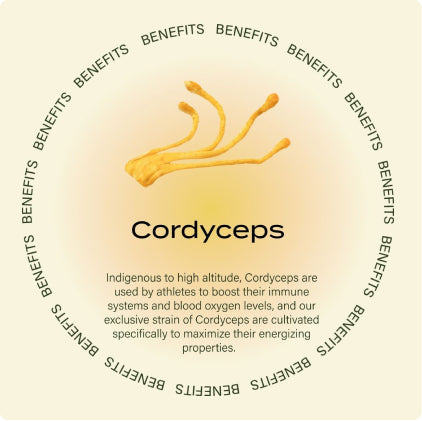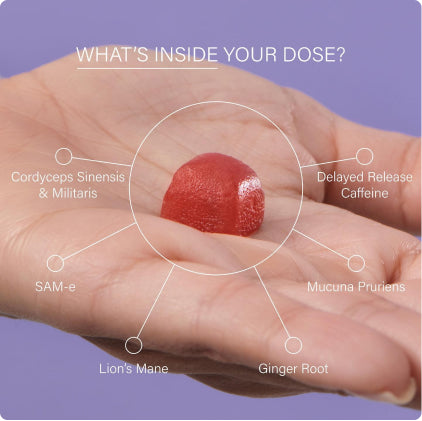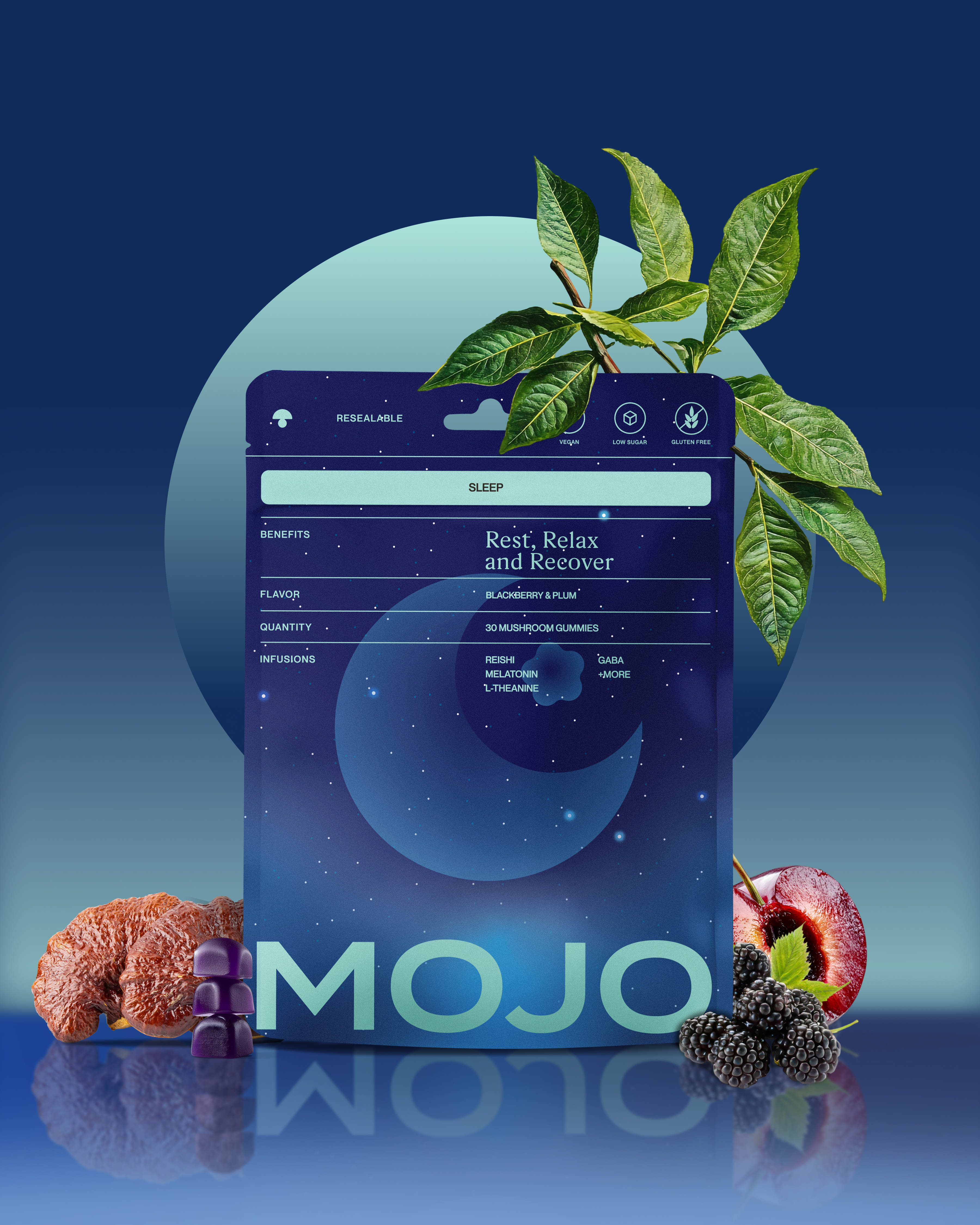The natural nootropic trend has gained global attention in recent years, as people search for safe and effective ways to improve cognitive function, mental clarity, and mood.
Ginseng—one of the oldest, and most highly regarded herbs in this category—is a root revered by many cultures for its medicinal qualities.
Initially known for its vitality and energy-boosting properties in Eastern medicine, ginseng has recently gained recognition for its significant cognitive-enhancing effects.
So, how exactly does ginseng work as a nootropic in terms of supporting memory, focus, and overall mental well-being?
Introduction to Ginseng and Ginseng Varieties
Ginseng refers to the root of plants in the Panax genus, meaning "All-Heal" in Greek. There are two principal types used in nootropic blends:
-
Asian Ginseng (Panax ginseng): Also known as Korean or Chinese ginseng, this type is traditionally deemed a “warming” tonic, valued for its stimulating and energy-enhancing effects.
-
American Ginseng (Panax quinquefolius): Known as a gentler “cooling” type of ginseng, American ginseng is often preferred for those more sensitive to stimulants.
Both types contain active components like ginsenosides, which are responsible for ginseng’s cognitive benefits. Asian and American ginseng differ in concentration and types of ginsenosides, which may explain their varying effects on the body and brain.
The Influence of Ginseng on the Brain
Ginseng’s nootropic effects manifest through complex relationships with neurotransmitter activity, hormones, and neural networks. Here’s a closer look at how it operates within the brain:
-
Increasing Neurotransmitter Activity: Ginsenosides affect neurotransmitters like dopamine, serotonin, and acetylcholine, crucial for mood, attention, and memory. By enhancing these chemicals, ginseng improves cognitive functions and reduces mental fatigue.
-
Decreasing Oxidative Stress: The brain is especially vulnerable to oxidative damage due to its high oxygen consumption and lipid content. Ginsenosides in ginseng act as potent antioxidants, sparing brain cells from the harmful effects of free radicals, which are linked to neurodegenerative diseases and cognitive decline.
-
Boosting Brain-Derived Neurotrophic Factor (BDNF): Research suggests ginseng may raise BDNF levels, a protein essential for neuroplasticity (the brain’s ability to reorganize itself through new neural connections). BDNF is crucial for learning, memory, and brain resilience.
Cognitive Benefits of Ginseng
Due to its multifaceted effects on brain chemistry and function, ginseng offers several cognitive benefits:
-
Enhanced Memory and Learning: Studies indicate ginseng can improve memory performance, particularly in tasks involving information retention and retrieval. This influence is partly due to ginseng’s impact on acetylcholine, a neurotransmitter linked to memory.
-
Improved Clarity and Focus: Ginseng helps with clarity and focus through its effects on dopamine and norepinephrine. Known as the “reward” neurotransmitter, dopamine plays a key role in motivation, focus, and mental acuity. Ginseng’s effect on dopamine makes it ideal for enhancing focus without caffeine jitters.
-
Mood Regulation: Long-term stress and anxiety impair brain and body function, leading to mental exhaustion. As an adaptogen, ginseng normalizes the body’s response to stress, helping to clear and ease the mind.
-
Overcoming Mental Exhaustion: Mental fatigue is increasingly common today. Ginseng serves as a natural energizer, providing a mild energy boost without overstimulating the nervous system, making it an effective adjunct to sustain focus and performance.
Research on Ginseng’s Nootropic Effects
Studies show ginseng’s effectiveness as a nootropic:
-
Memory & Learning: In one study, healthy young adults taking 400mg of ginseng extract showed improved working memory. Another study found ginseng supplementation improved cognitive performance in patients with mild cognitive impairment.
-
Mood & Fatigue: A study in the American Journal of Clinical Nutrition found that ginseng significantly reduced fatigue and stress in chronic fatigue sufferers. Participants also reported improved well-being.
-
Adaptogenic Effects: Ginseng’s adaptogenic effects are well-documented, with studies confirming it reduces stress hormones and strengthens mental resilience, particularly beneficial for individuals facing cognitive decline due to prolonged stress exposure.
Using Ginseng as a Nootropic
When considering ginseng as a nootropic, dosage and type are essential to achieve optimal results:
-
Types: Ginseng is available in capsules, gummies, teas, and extracts. Extracts and powders are generally more concentrated, while teas and gummies are convenient for daily use.
-
Dosage: Standard extracts usually range between 200-400 mg, though up to 900 mg may be used for cognitive enhancement under professional guidance, especially for sensitive individuals.
-
Timing: Ginseng’s effects can last several hours, so it’s often taken in the morning or early afternoon to avoid sleep interference. Consistent use yields long-term cognitive benefits.
Potential Side Effects and Interactions
Ginseng is generally safe, but higher doses may cause mild side effects, including headaches, digestive upset, and insomnia if taken too late in the day
Final Thoughts: Ginseng – A Potent Natural Nootropic
Among natural nootropics, ginseng stands out for its ability to improve cognitive function, reduce mental fatigue, and support emotional well-being. With thousands of years of use and growing scientific backing, ginseng can be a valuable addition to any nootropic regimen.
By enhancing neurotransmitter activity, reducing oxidative stress, and promoting neuroplasticity, ginseng provides a balanced, natural approach to cognitive enhancement, ideal for students, professionals, and anyone looking to support mental vitality and resilience.
Table of contents









